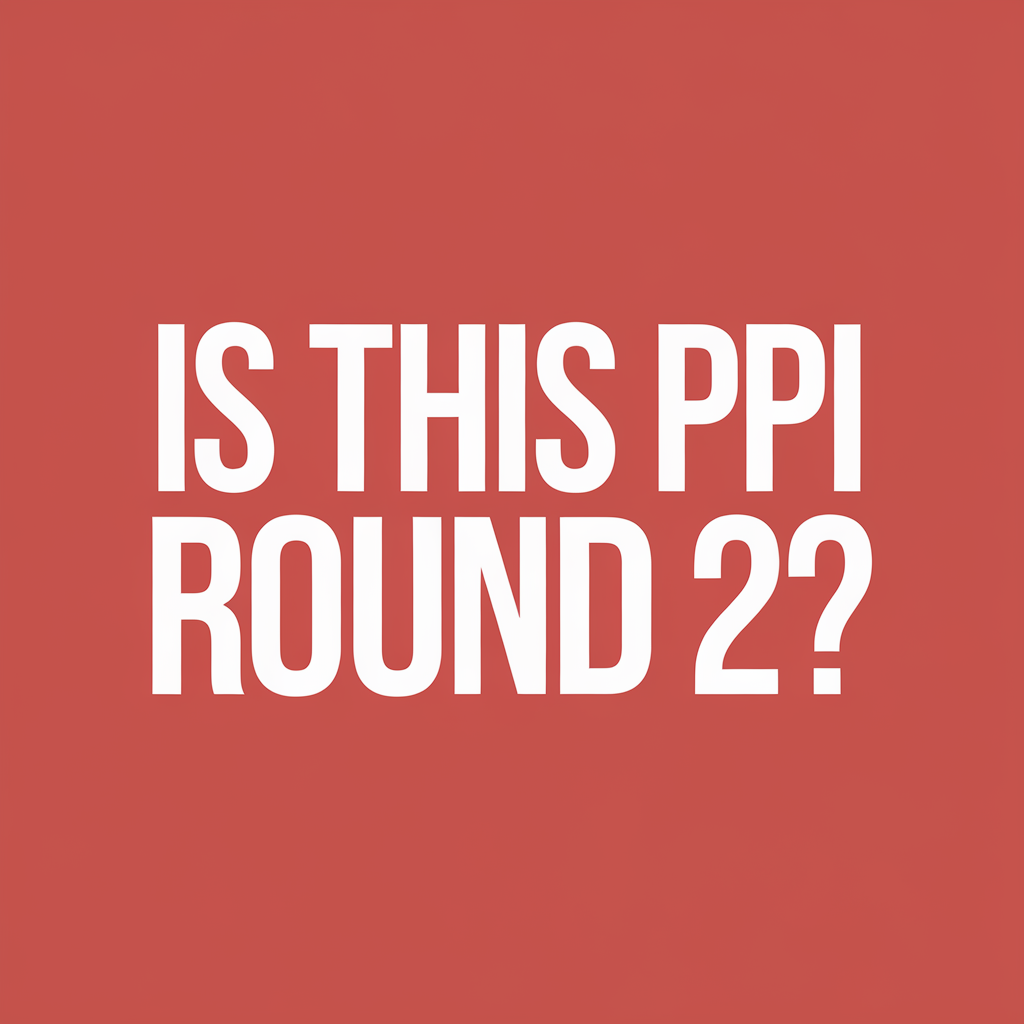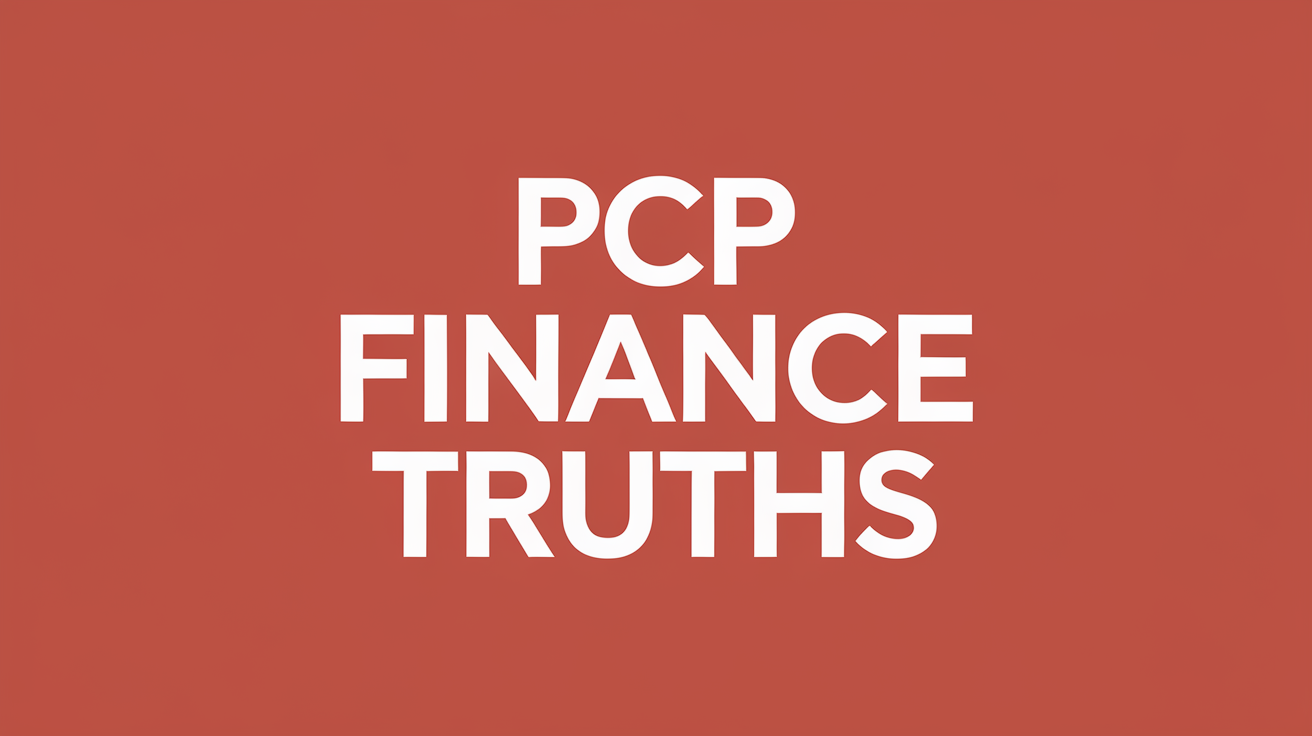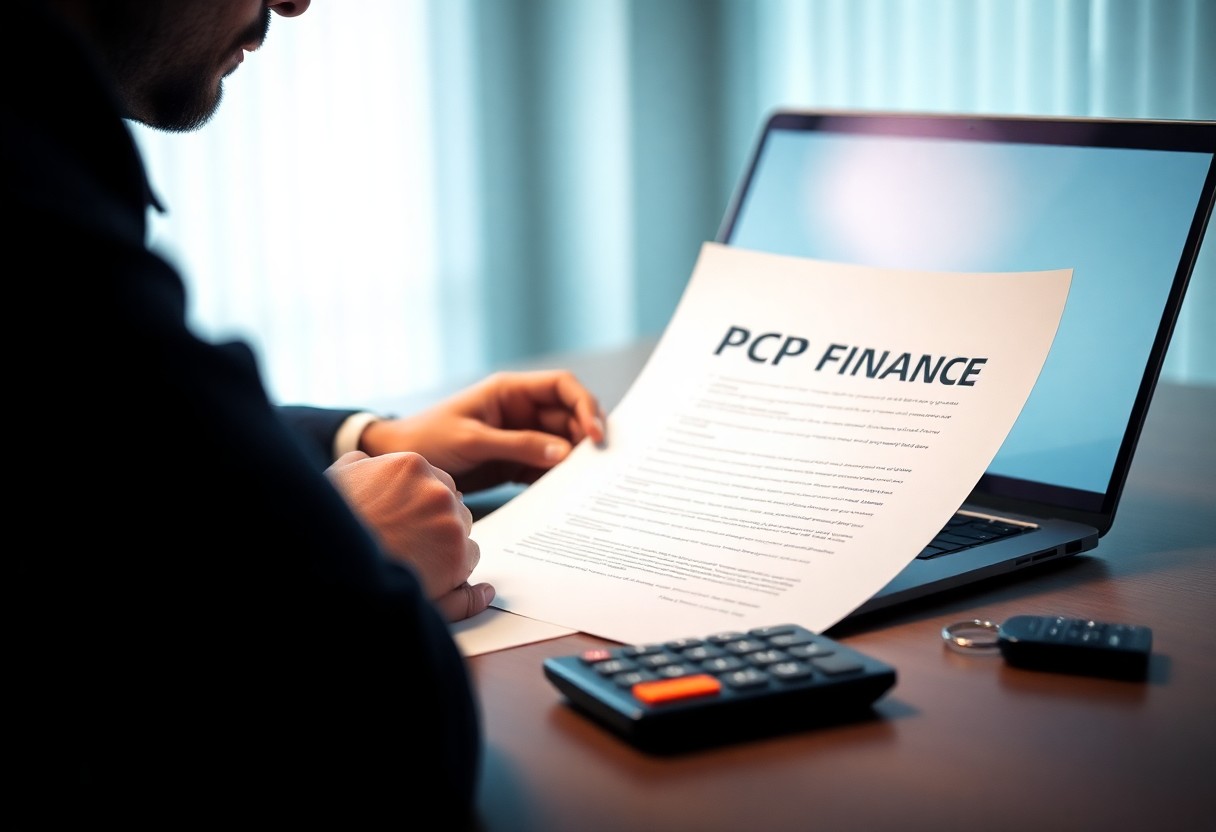It’s becoming clear that PCP finance mis-selling could be the next major financial scandal, drawing comparisons to the widely criticised PPI scandal. If you took out a Personal Contract Purchase (PCP) agreement for a car, you might not have been given all the details about inflated interest rates or undisclosed commissions. Just like with PPI, thousands of people could be owed compensation due to misleading sales tactics. Understanding how PCP mis-selling compares to PPI and whether your agreement was unfair is key to knowing if you have a potential claim.
Understanding PCP Finance and PPI: Key Differences
Before exploring the mis-selling concerns surrounding PCP finance, it’s important to understand how it differs from PPI. While both involve financial products linked to consumer agreements, they serve distinct purposes. PCP finance is a way to purchase a vehicle, typically with lower monthly payments, whereas PPI was insurance designed to cover loan or credit repayments in case of illness or unemployment. The key issue in both cases is mis-selling, where consumers were either misinformed or misled about the terms and benefits, leading to significant financial losses. Understanding these differences helps you assess whether you may have been affected.
What is PCP Finance?
One of the most popular ways to finance a car purchase, PCP (Personal Contract Purchase) allows you to pay lower monthly instalments over a fixed period, with an option to buy the car at the end by making a large final payment. Instead of paying for the full value of the car upfront, you cover its depreciation during the contract term. However, issues arise when you are not properly informed about balloon payments, mileage limits, and potential charges, leading to unexpected costs. Many consumers have been mis-sold PCP finance due to unclear or misleading information provided at the time of purchase.
The PPI Scandal Overview
Across the UK, millions of consumers were mis-sold Payment Protection Insurance (PPI) alongside loans, mortgages, and credit agreements without fully understanding the product. In many cases, policies were added without consent or sold under false pretences, with assurances that they were necessary for loan approval. PPI was intended to cover repayments in specific circumstances, but restrictive terms meant many policyholders could never make a claim. The scandal led to banks and financial institutions paying billions in compensation, marking it as one of the most significant cases of financial mis-selling in British history.
But what made the PPI scandal so widespread was the sheer scale of mis-selling, with aggressive sales tactics and misleading advice being common practice. Some policies were automatically included in loan agreements, while others were pushed on customers who were ineligible to claim due to pre-existing conditions or employment status. It took years of regulatory scrutiny and legal challenges before compensation schemes were introduced, allowing you to reclaim unfairly charged premiums. The PPI scandal serves as a warning of how financial products can be sold without transparency, highlighting the importance of understanding what you are signing up for.
Scale and Impact of Mis-Selling
Assuming the mis-selling of PCP finance mirrors the PPI scandal, the extent of financial harm could be substantial. Poor transparency in commission disclosure and unfair lending practices have left many consumers paying more than necessary for their vehicle finance. This issue affects a large number of car buyers, raising concerns about how deeply embedded these practices are within the motor finance industry. The financial and emotional strain of these mis-sold agreements cannot be overlooked, as many consumers may now be entitled to compensation to rectify the damage caused. The scale of mis-selling could lead to widespread claims and industry reform.
Financial Impact on Consumers
One of the most significant effects of the PCP finance mis-selling scandal is the financial burden placed on consumers. Hidden commissions, inflated interest rates, and unclear contractual terms have resulted in many paying more than they should have for their vehicle finance deals. This has led to thousands facing unexpected financial hardship, reducing their ability to manage other important expenses. If you have entered into a PCP deal without full awareness of additional charges or commission structures, you could be entitled to compensation. Understanding your finance agreement is key to determining whether you have been affected by mis-selling.
Number of Affected Customers
About 90% of cars purchased on finance in the UK are through PCP agreements, making it one of the most common forms of vehicle finance. With millions of contracts in place, the scale of potential mis-selling is vast. Regulatory scrutiny has already revealed widespread issues with how these agreements were sold, with some lenders failing to disclose commissions that could have unfairly increased consumer costs. If you took out a PCP agreement without a clear understanding of commission structures, you may be among those who have a valid claim.
Another factor contributing to the high number of affected customers is the lack of transparency in how PCP agreements were structured. Many customers were not informed that their lender or broker was earning a commission linked to the interest rates they were charged. As a result, consumers unknowingly paid excessive amounts over the duration of their contracts. Regulatory investigations have shed light on these practices, prompting many to seek compensation. If you believe your PCP finance deal was mis-sold, it’s important to review the terms and explore the possibility of reclaiming unfair costs.
Common Mis-Selling Practices
Any mis-selling of PCP finance often involves failure to provide clear and accurate information, leaving you with an agreement that may not suit your financial situation. Sales representatives may downplay important details, such as balloon payments or interest rates, leading you to commit without fully understanding the long-term costs. Additionally, commissions earned on these agreements are sometimes not disclosed, meaning you could be paying more than necessary. These practices can result in financial strain or unexpected charges when the agreement ends, making it important to examine the terms carefully before signing.
Misleading Information and Hidden Costs
Along with unclear explanations, some dealerships may deliberately mislead you about total repayment amounts, interest charges or mileage restrictions. Hidden fees, such as excess mileage penalties or costly optional extras, can surface later, significantly increasing the overall cost of your agreement. In some cases, the future value of the vehicle is overstated, giving you unrealistic expectations about its affordability or resale potential. If these details were not fully explained, you may have been mis-sold your PCP finance agreement.
Pressure Selling Tactics
An aggressive sales approach can lead you into committing to PCP finance under pressure, without having sufficient time to consider if it meets your needs. Some dealerships may push you towards a particular deal by suggesting it is limited-time only or implying that immediate action is necessary. This can leave you feeling rushed or unsure, increasing the risk of entering into an unsuitable financial agreement.
Understanding these tactics can help you recognise when a salesperson is prioritising their commission over your best interests. You should never feel obligated to agree on the spot or accept terms you do not fully understand. If you experience high-pressure techniques, it is best to step back and review the offer independently. Taking the time to assess different financing options ensures that you enter an agreement that works for you in the long run.
Regulatory Response and Legal Framework
After concerns over PCP finance mis-selling gained traction, regulatory bodies, particularly the Financial Conduct Authority (FCA), intensified their scrutiny of the sector. The response has focused on ensuring transparency, fair treatment of consumers, and compliance with existing financial regulations. Legal frameworks are being assessed to determine if further protections are necessary to prevent unfair lending practices. If mis-selling is identified on a large scale, financial firms could face compensation claims similar to those seen in the PPI scandal. As investigations progress, potential legal actions and regulatory reforms may reshape the way PCP agreements are sold in the UK.
FCA Guidelines and Investigations
Framework updates from the FCA aim to address potential misconduct in PCP agreements by enforcing stricter guidelines on transparency and affordability checks. The regulator has launched investigations to determine whether lenders and brokers properly disclosed financial terms and ensured that consumers fully understood their obligations. As part of these efforts, the FCA is evaluating whether commission structures incentivised dealers to offer more expensive loans without adequate justification. Their findings may lead to industry-wide changes, including revised lending standards and compensation avenues for affected consumers. Compliance failures could result in significant fines and corrective measures to protect borrowers.
Consumer Protection Measures
Protection for consumers is at the core of regulatory efforts to address PCP finance mis-selling. Authorities are working to strengthen oversight of the industry, ensuring that lenders adhere to fair lending practices. Initiatives include improving transparency in loan agreements, restricting unfair commission structures, and holding financial institutions accountable for misleading sales tactics. By enforcing these measures, regulatory bodies aim to prevent consumers from entering agreements that may not be affordable or fully understood. If you believe you have been mis-sold a PCP contract, you may have grounds to challenge its terms and seek compensation.
Investigations into PCP finance mis-selling have highlighted the need for broader consumer protection measures beyond those currently in place. This includes mandated disclosures that clearly outline total repayment costs, stricter affordability assessments, and better complaint-handling procedures. Regulatory bodies are pushing lenders to eliminate opaque commission models that may lead to biased loan recommendations. Additionally, financial ombudsman services may play a more active role in resolving disputes between consumers and lenders. By increasing transparency and accountability, these measures aim to reduce the risk of individuals unknowingly committing to unaffordable or disadvantageous financial agreements.
Making a PCP Mis-Selling Claim
Now, if you believe you were mis-sold a PCP finance agreement, you have the right to seek redress. The process involves assessing whether you were given accurate and fair information about the terms of your agreement, including any commissions paid to the dealer or finance provider. You will need to gather relevant documents and submit a complaint to the finance company. If they reject your claim, you can escalate the matter to the Financial Ombudsman Service for further review. Pursuing a claim could lead to compensation or adjustments to your loan agreement, depending on the circumstances.
Find Out If You’re Owed a PCP Finance Refund
If you took out a PCP finance agreement, you might have been mis-sold without realising. Just like with PPI, thousands of drivers are now discovering they were charged hidden commissions and unfair interest rates. Don’t wait—find out if you’re owed compensation today. Our expert team at Clear Cut Legal offers a No Win, No Fee service, making it risk-free to check your eligibility. Contact us now and start your claim.
Eligibility Criteria
Against a backdrop of increasing mis-selling complaints, your eligibility to claim will depend on several factors. If your finance provider or dealer failed to disclose necessary information, such as commission payments or the overall cost implications, you may have a case. You must show that this lack of transparency influenced your decision to take out the PCP agreement. Additionally, if the finance terms were not fully explained, leaving you unaware of ongoing financial commitments, your claim is likely to be stronger.
Documentation Requirements
Across the claims process, accurate documentation plays a key role in supporting your case. You will need copies of your PCP agreement, any correspondence between you and the finance provider, and any promotional materials that influenced your decision. Bank statements and payment records can help demonstrate financial impact, while complaint records can provide evidence of prior concerns raised with the lender. Keeping a clear and organised record will strengthen your position.
This paperwork helps establish how the PCP agreement was sold to you and whether important details were withheld. Without sufficient documentation, it may be difficult to prove that you were misled or that the terms were not properly explained. If you are unable to locate all necessary documents, you can request copies from your finance provider. Retaining a detailed record from the start of the claim process ensures that you can present a comprehensive case if the matter needs to be escalated.
Compensation and Resolution Process
Not unlike the PPI scandal, the compensation process for PCP finance mis-selling aims to return you to the financial position you would have been in had you been properly informed. If a lender or broker failed to disclose hidden commissions or did not provide clear information about your finance agreement, you may be eligible for a refund of interest and charges. The Financial Ombudsman Service (FOS) and the Financial Conduct Authority (FCA) oversee these claims, ensuring fair resolutions. You may need to provide evidence of mis-selling, such as documentation of your agreement and details of lender communications.
Expected Compensation Amounts
An estimate of your compensation depends on factors like the size of your loan, the interest paid, and whether hidden fees or commissions were applied. Some claimants may receive refunds covering excess payments, while others could see adjustments to outstanding balances. In cases of serious breaches, full refunds of interest and charges may be applicable. Typically, compensation amounts can range from hundreds to several thousand pounds, depending on individual circumstances. Seeking a professional review can help clarify what you might be entitled to claim.
Timeline and Procedures
Amounts refunded through PCP finance mis-selling claims can take several months to process. Initially, you must submit a formal complaint to the lender, which they have eight weeks to respond to. If unresolved, you may escalate the case to the FOS, which could take several more months to assess and rule on your claim. Legal action is a potential last resort, often extending the timeline further. Patience is important during this process, as claim volumes may affect resolution speeds.
Process delays can occur depending on the complexity of your claim and the responsiveness of your lender. Once the FOS intervenes, they will review evidence from both you and the lender before issuing a decision. If the ruling is in your favour, the lender must provide compensation within a set timeframe. If you are unhappy with the outcome, you may still be able to pursue legal avenues. Staying organised and ensuring thorough documentation will support a smoother resolution.
Summing up
Following this, you can see how PCP finance mis-selling is drawing comparisons to the infamous PPI scandal. If you were not given full details about commission structures or affordability checks, you might have grounds to claim compensation. Understanding your rights and reviewing your finance agreements can help you determine whether you were mis-sold a PCP deal. As investigations continue, more cases are emerging, making it important to stay informed. If you suspect mis-selling, seeking financial advice can clarify your next steps. Ensuring transparency in financial agreements protects you from unfair lending practices and potential financial losses.
FAQ
Q: What is PCP finance mis-selling and how does it compare to the PPI scandal?
A: PCP (Personal Contract Purchase) finance mis-selling refers to cases where customers were not given clear and transparent information about the terms, costs, and implications of their car finance agreements. This includes failing to disclose commission structures, hidden fees, or unfair interest rates. In comparison, the PPI (Payment Protection Insurance) scandal involved banks and lenders selling insurance products that were unsuitable or unnecessary for borrowers. Both scandals involve financial products being mis-sold by lenders, leading to significant consumer complaints and potential compensation claims.
Q: What are the signs that my PCP finance agreement may have been mis-sold?
A: Signs of PCP finance mis-selling include not being informed about alternative finance options, undisclosed commissions paid to the dealership or broker, unclear explanations of interest rates, or being pressured into an agreement without fully understanding the terms. If a salesperson failed to properly assess your financial situation before offering a PCP deal, or if you were told the contract was the only available option, you may have been mis-sold your finance agreement.
Q: Can I claim compensation if I have been affected by PCP finance mis-selling?
A: Yes, if you can demonstrate that your PCP finance agreement was mis-sold, you may be eligible for compensation. This could involve recovering excessive interest payments, unfair charges, or even having parts of your agreement refunded. To begin the claims process, you should review your contract, gather any relevant documents, and seek advice from a financial expert or claims specialist. If necessary, you can escalate your complaint to the Financial Ombudsman Service (FOS) for further investigation.









